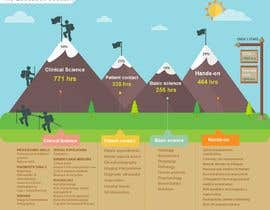Nutrition'S Effect On Back Pain Alleviation: Dietary Choices To Welcome And Those To Steer Clear Of
Nutrition'S Effect On Back Pain Alleviation: Dietary Choices To Welcome And Those To Steer Clear Of
Blog Article
Web Content By-Russo Lykke
When it pertains to handling your back pain, the food options you make can considerably affect exactly how you feel on a daily basis. Imagine being able to ease your pain simply by changing what you eat. By recognizing the function of nutrition in pain in the back administration and knowing which foods to include or steer clear of, you can take proactive actions in the direction of a healthier and a lot more comfy lifestyle. The connection between nourishment and back health is more extensive than you may realize-- let's explore just how specific foods can either soothe or exacerbate your pain in the back.
Significance of Nutrition in Pain In The Back
Nourishment plays an important function in taking care of pain in the back. Your diet plan can significantly influence swelling levels and total pain levels in your back. Consuming a balanced diet rich in nutrients like vitamins D and K, calcium, magnesium, and omega-3 fatty acids can help in reducing swelling and strengthen bones, which are important for back health.
In https://desotocountynews.com/desoto-county-news/the-joint-chiropractic-comes-to-desoto-county/ , maintaining a healthy weight via appropriate nourishment can relieve tension on your spine, minimizing the threat of pain in the back.
Furthermore, particular nutrients like anti-oxidants discovered in vegetables and fruits can assist battle oxidative stress and anxiety and advertise healing in the body, including the back muscles and spine.
On the other hand, taking in too much amounts of refined foods, sweet beverages, and undesirable fats can add to swelling and weight gain, exacerbating back pain.
Foods to Eat for Back Health
To support a healthy back, integrating nutrient-rich foods right into your everyday meals is key. Including why does my spine hurt in anti-oxidants like berries, spinach, and kale can help reduce swelling in your back, easing discomfort and pain. Omega-3 fatty acids found in fatty fish such as salmon and mackerel have anti-inflammatory buildings that can benefit your back health and wellness.
In hurt back , taking in nuts and seeds like almonds, walnuts, and chia seeds supplies vital nutrients like magnesium and vitamin E, which support muscle function and reduce oxidative tension. Incorporating lean proteins such as hen, turkey, and tofu can assist in muscular tissue repair work and maintenance, advertising a solid back.
Don't forget to include dairy or fortified plant-based options for calcium to sustain bone health and wellness. Finally, hydrate with a lot of water to keep your spinal discs moistened and operating optimally. By consisting of these nutrient-dense foods in your diet, you can nourish your back and support total back health.
Foods to Stay Clear Of for Back Pain
Choose avoiding refined foods high in added sugars and trans fats when looking for relief from back pain. These types of foods can add to inflammation in the body, which may intensify pain in the back. Say no to sugary treats like candy, breads, and sweet drinks, along with fast food products like burgers, french fries, and fried hen that are usually packed with trans fats.
Furthermore, avoid foods having high levels of refined carbohydrates, such as white bread, pasta, and pastries, as they can increase blood glucose levels and potentially aggravate inflammation in the body.
It's additionally a good idea to restrict your intake of foods high in hydrogenated fats, like red meat and full-fat dairy items, as they can contribute to inflammation. Refined foods like delicatessens meats, chips, and packaged snacks are commonly high in hydrogenated fats and need to be eaten in moderation.
Conclusion
To conclude, paying attention to your diet regimen and making wise food choices can have a considerable impact on handling neck and back pain. By integrating nutrient-rich foods like berries, fatty fish, nuts, and lean proteins, and preventing processed and sugary products, you can help in reducing inflammation and support on the whole back health. Keep in mind, what you consume plays a crucial role in how you really feel, so make sure to prioritize your nourishment for a much healthier back.
